Create and Edit Worksheet
To create a worksheet:
- Create a worksheet
- Add fields
- Set fields (name, type, required or not, etc.)
- Save
- Edit a worksheet
- Further configuration
Create/Edit Worksheet
Creating a new worksheet is the same as editing a worksheet, except that the operation entrance is different.
- Create Worksheet
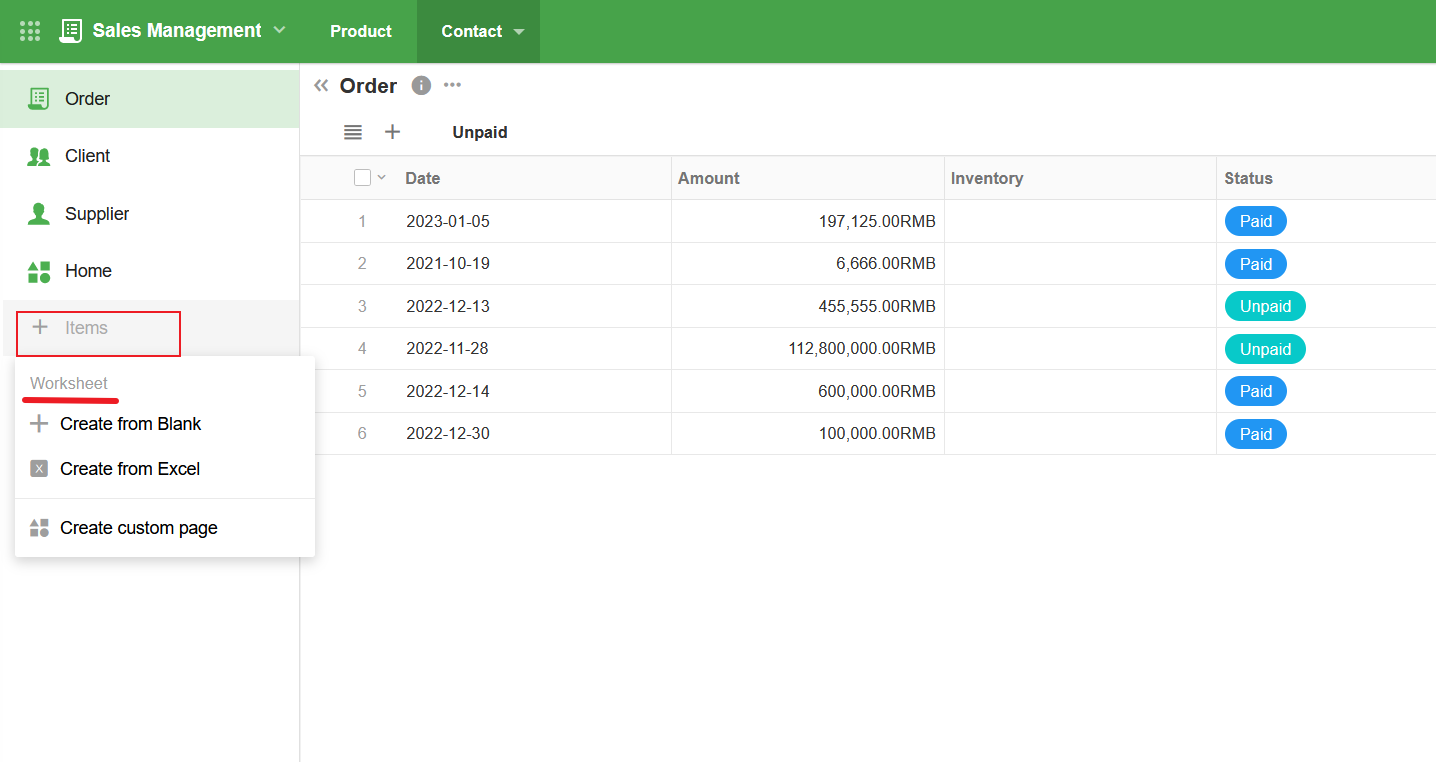
- Edit Worksheet
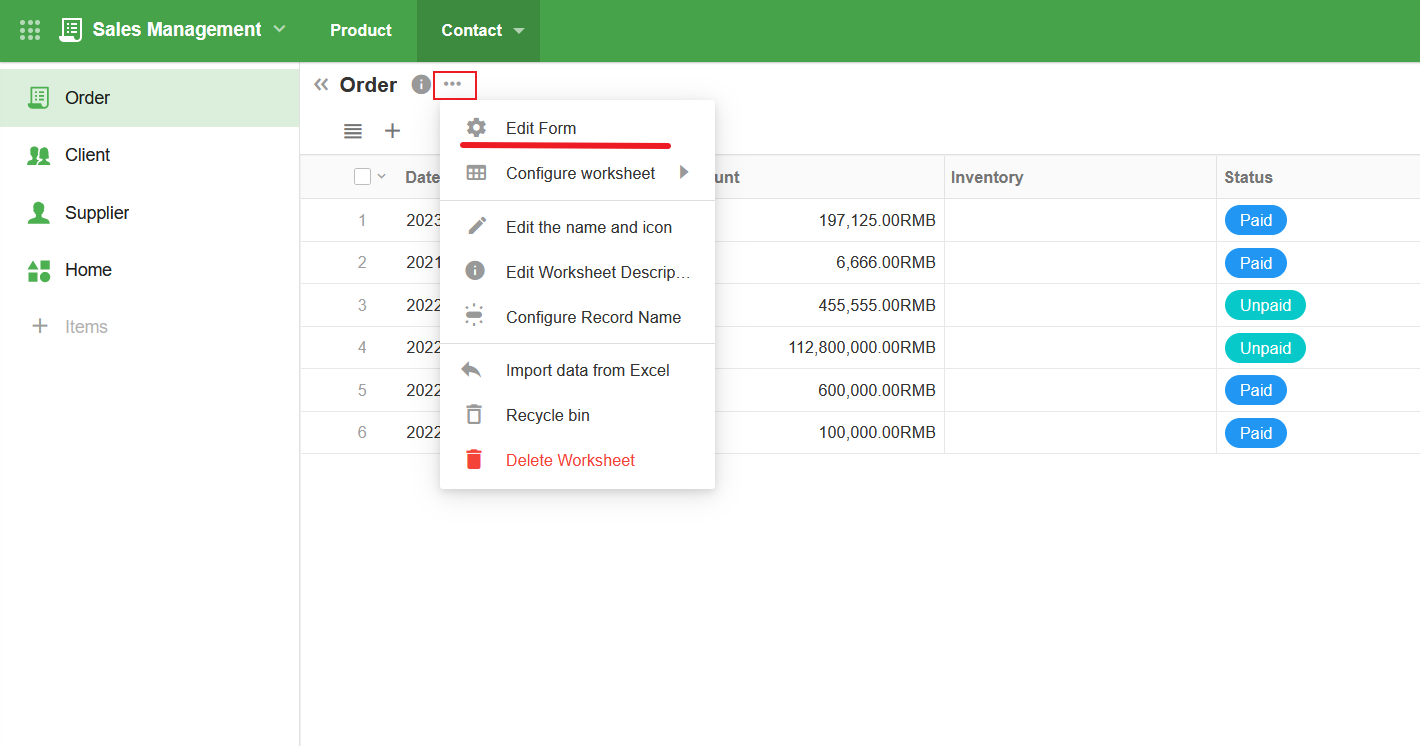
Add Field
Fields in the worksheet are equivalent to columns in the Excel sheets, except that there are different types of fields that help you better store data in each record.
For example, a row of record can contain fields such as rich text, multi-choice, single-choice, attachment, etc.
1. Add Field
In the left control area, you can click on a control to add or drag it to the middle editing area.
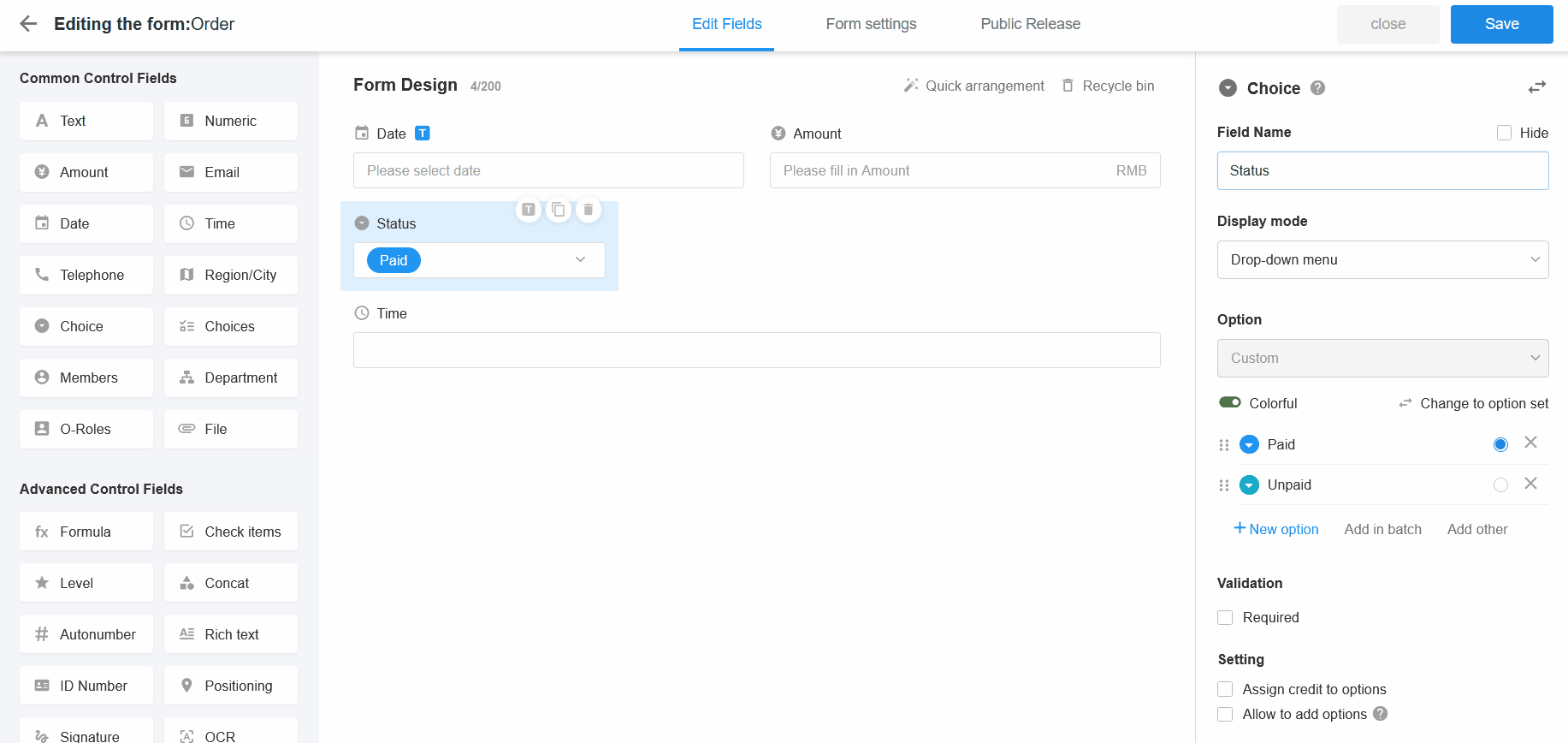
Note: Add up to 200 fields to a worksheet; [Line] and [Remarks] do not count.
2. Title Field
The title field is usually identifiable and unique, identifying the main content. For example, in a contact worksheet, name should be set as title field.
Mouse over the field and you can see [Set as title] icon.
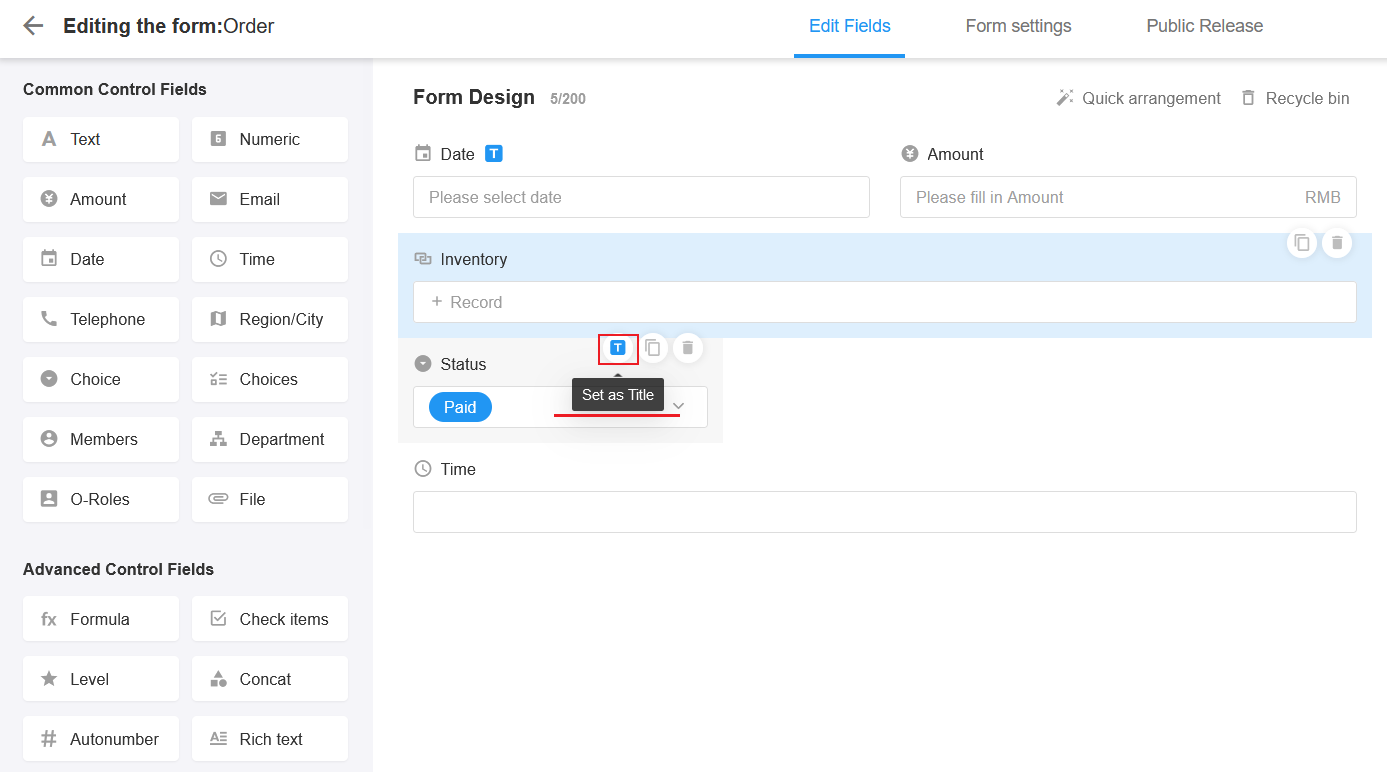
Learn more details about title field
3. Reorder Field
Click on the field and drag it to the desired place.
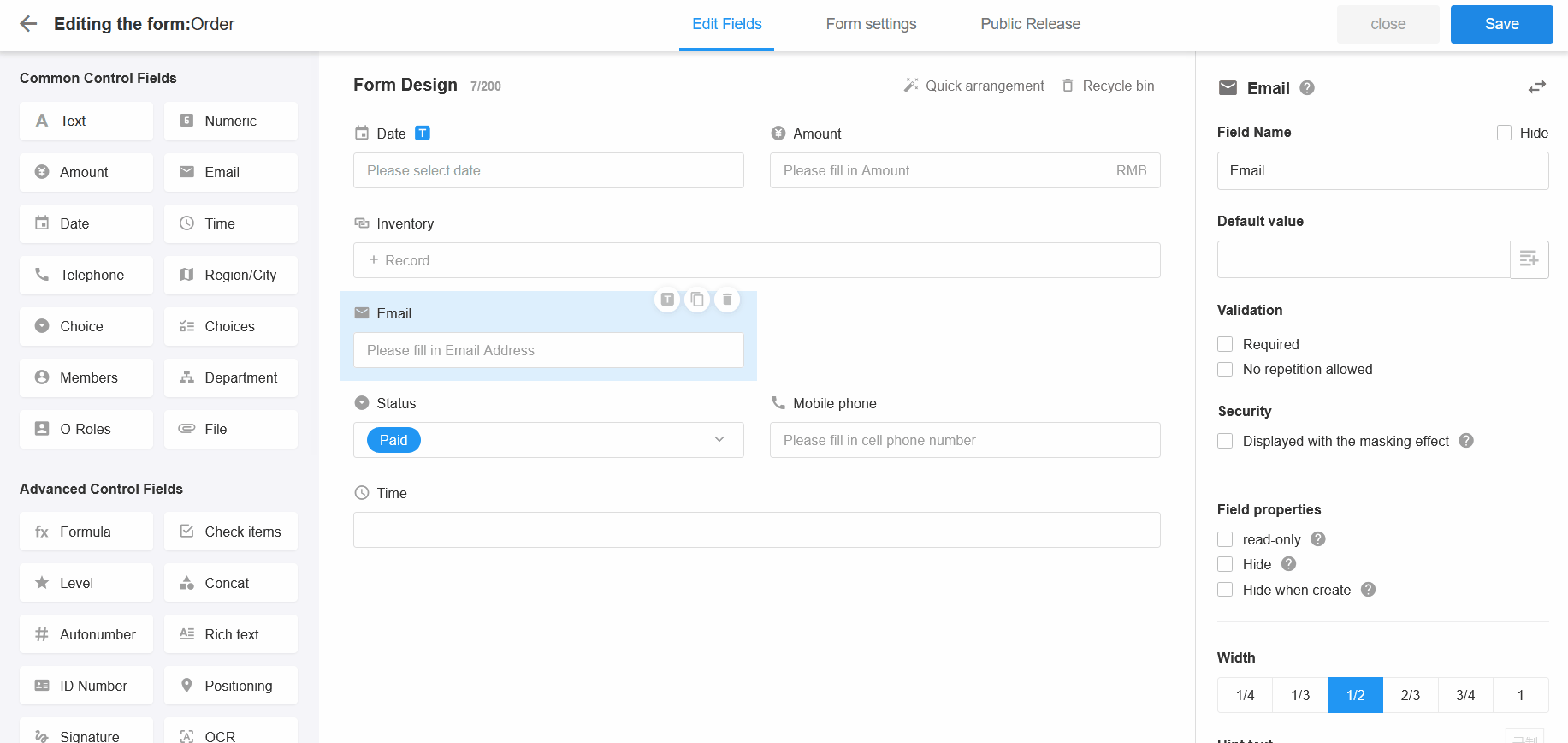
4. Quick Arrangement
Click on [Quick Arrangement] to set the arrangement of fields in the form.
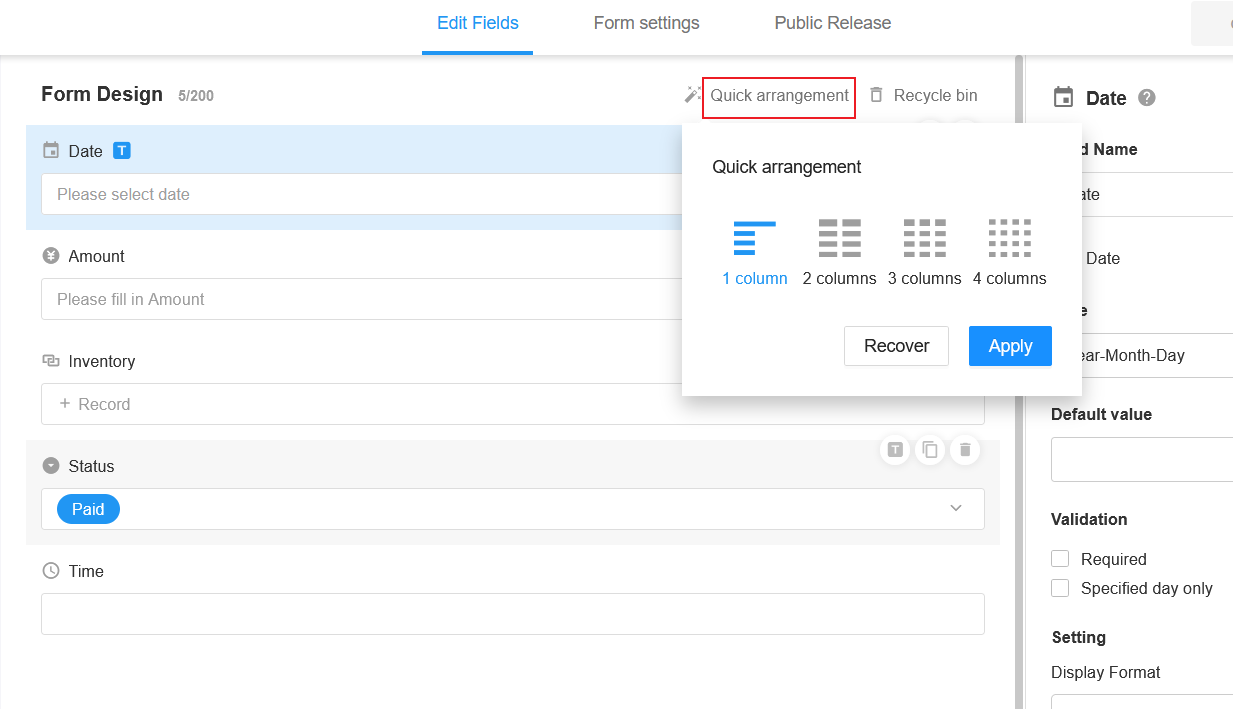
5. Copy Field
Sometimes there are same configurations in two fields, in this case, you can click on [Copy control] and modify.
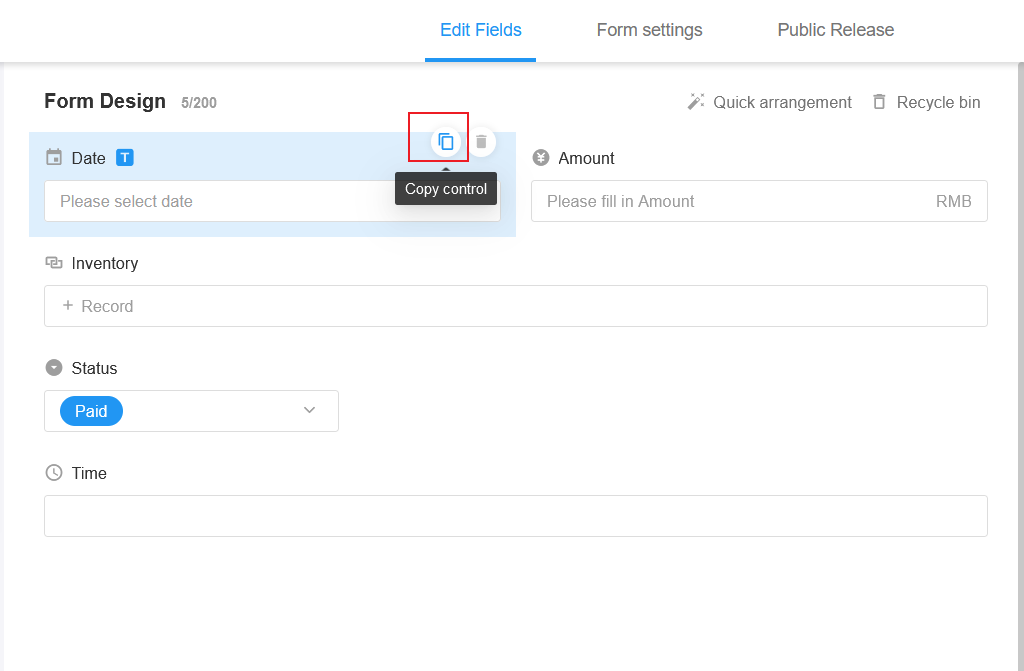
6. Delete/Restore Field
Mouse over the field and you can see the delete icon.
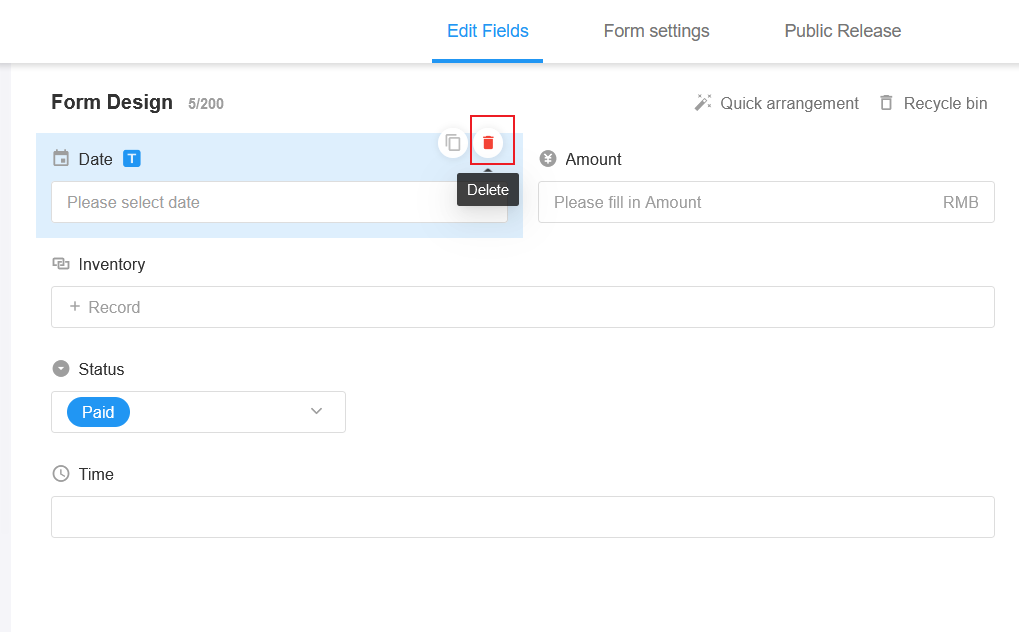
After deleting a field, if it is a data filter for a view or involved in workflows, there will show you “The data field is deleted”.
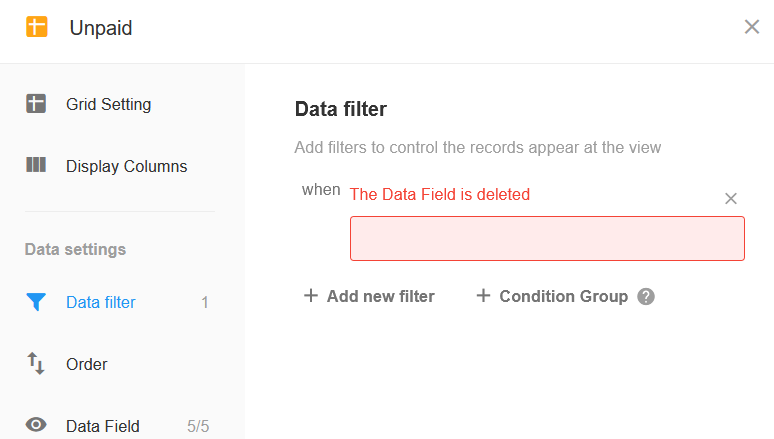
Restore
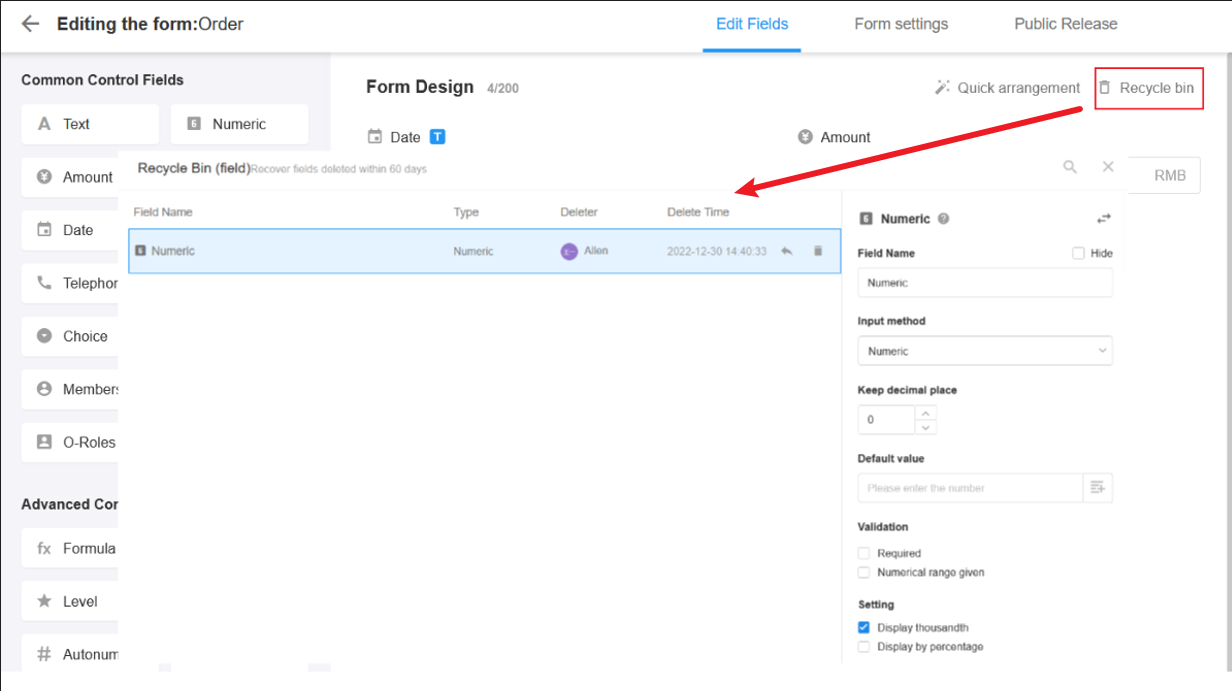
Set Field
The properties of the field include fixed properties such as name, validation, default value, width, etc., as well as additional properties, for example, for the amount control, you can set unit or decimal place.
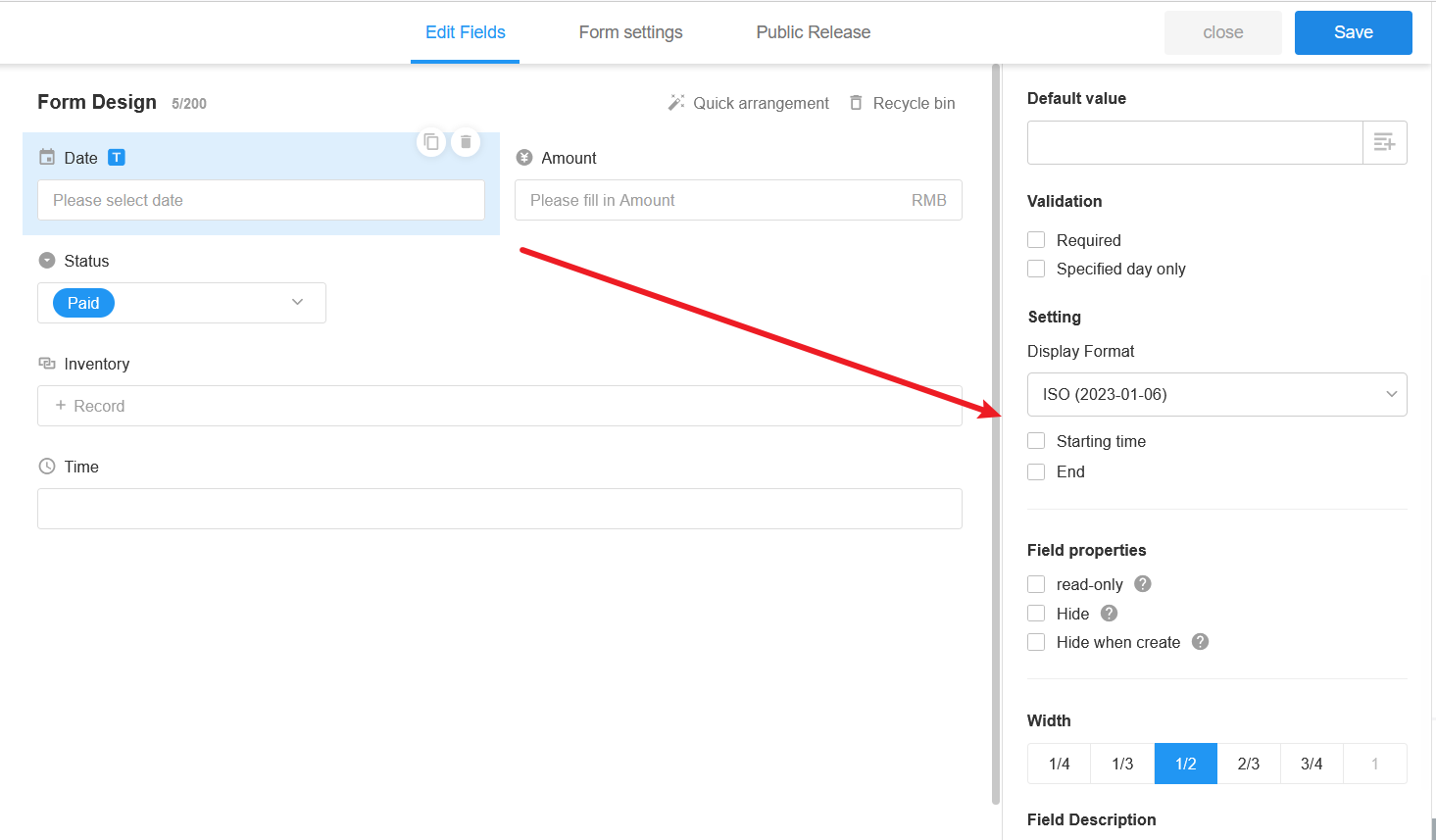
Learn more about controls
Save
After finishing the above, click [Save] in the upper right corner. This is the initial setup of the form, then you can try to add a new row of record.
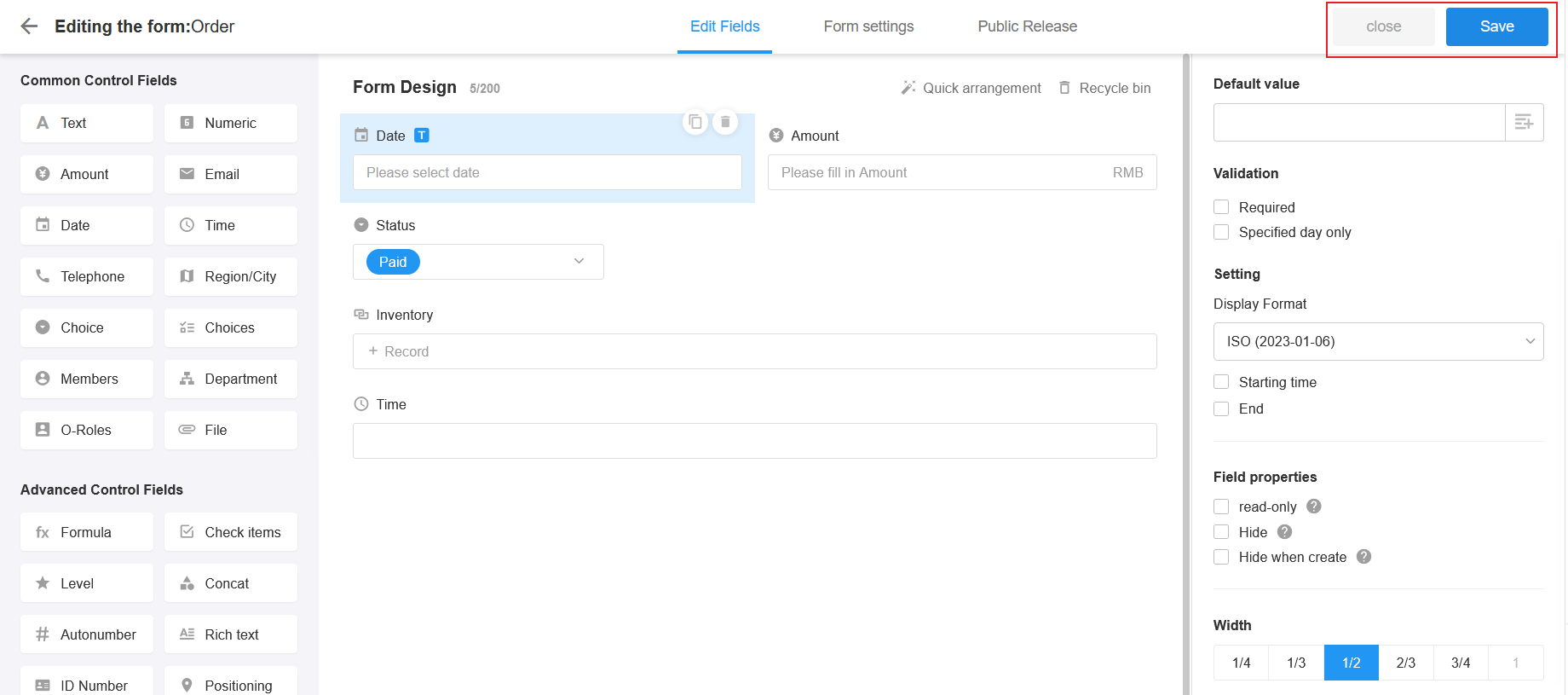
Further Configuration
1. Business Rule
If whether to display a field or not depends on the content of other fields, you can set the display rules for the field.
Learn more about business rules
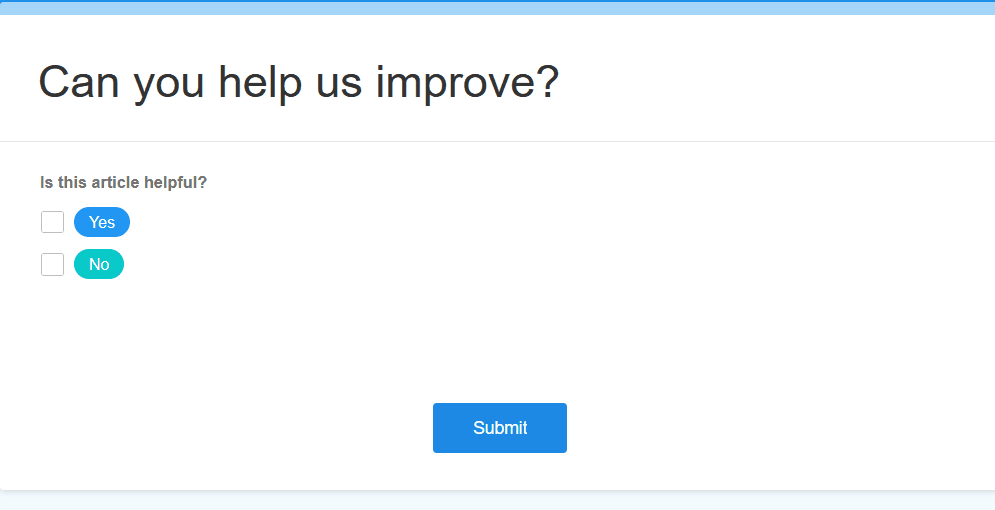
2. Public Form
You can publish the form so that external users can submit relevant data without logging in, such as submitting questionnaire, collecting registration information, etc.
Learn more details about public form
Have questions about this article? Send us feedback